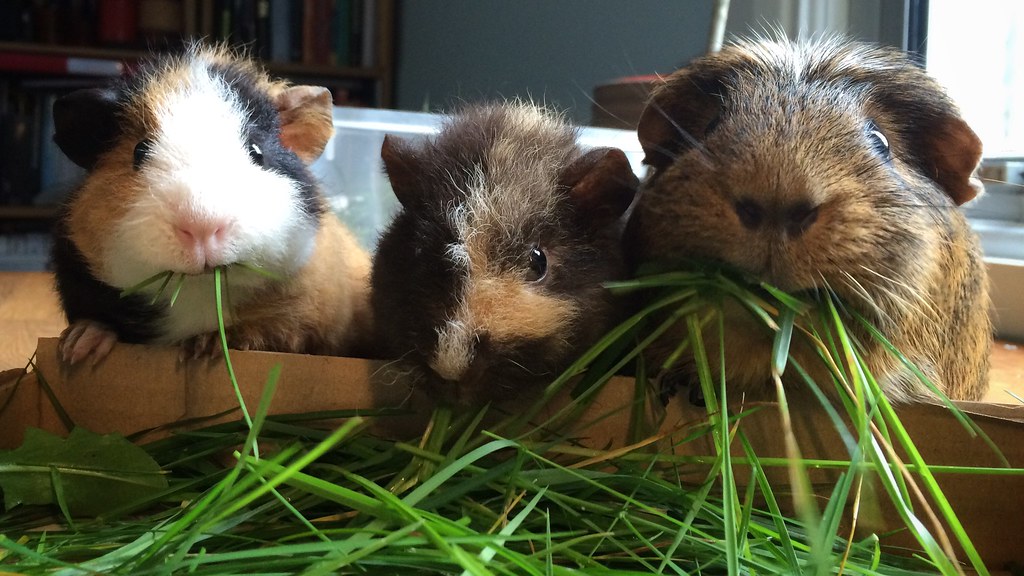|
Welcome back for Tip #4 in the series about Embedding Newly Learnt Skills and Maximising the Return on your Training Investment. For this tip we will be talking about Guinea Pigs. No you haven't inadvertently stepped into the world of funny, furry, squeaking animals. I'm talking about finding people to practice your skills with.
A quick side-step for a moment. A client recently asked me if these tips only apply to leadership training and I thought this was worth a brief moment for anyone reading this article. The answer is of course, no. These tips have been written with examples that focus on leadership skills development (because that's what I do), but equally apply to learning gathered through most traditional training programs. A refresher on tips 1-3. Tip #1 talked about the importance of applying new skills immediately so we retain as much knowledge as possible. Tip #2 had us Visualising the successful implementation of our skills, leading to good planning and confidence. Tip #3 delved into the psychology of why socialising our new knowledge with others helps build strong neural pathways and good knowledge retention. If you have only just caught this blog and want to catch up on the earlier tips, keeping scrolling and check them out. Finding a good guinea pig (or person to actually practice your skills with) can be an important part of learning to implement your leadership skills for a number of reasons: 1 - they provide a safe space to build your confidence 2 - they can provide feedback 3 - you can discover any pitfalls in your approach before you implement on the main stage Let's break each of these down a little. Safe Space Launching into a new leadership style or technique can feel intimidating, particularly when you are trying something for the first time. You don't want to mess it up as it effects others and potentially your team dynamic. You may also want to be able to implement your new skills with confidence, in which case giving it a practice run with someone else first can provide you with that boost to carry if off with conviction. Whenever I am learning to deliver new training content or have a new coaching technique to implement, I always find a friendly person to do a dry run with. I usually surprise myself with my knowledge and develop a new level of confidence to take onto the main stage. Feedback Those who know me can tell you how much I value feedback. I seek it constantly and receive it with eagerness. If your Guinea Pig can also give you quality feedback then that can help tremendously. Be aware though, not all feedback must be acted upon. Although having an open mind in receiving feedback is critical, also take into consideration your Guinea Pig's context and background before actioning. They may not have all the information that you have. Try to be objective in evaluating the feedback. Pitfalls Any skill, technique or tool you learn will be valuable, but many will also have pitfalls to watch out for. For example, you might have learnt how team members with similar social styles communicate well together, but when you put these similar people together, you discover that some of them clash inter-personally. Better to find out in a safe guinea-pig pen, than in your gun team at work! Although we can be smart people, we don't usually think of everything, and putting theory into practice can produce unexpected results. Identifying pitfalls before your real-life implementation can be very handy. Selection A quick note on how to select a guinea pig. Obviously you want them to be as close to the people you are targeting as possible. But there is also some merit in the completely objective outsider reviewing your skills. They might point out the obvious that someone closer may not. You might want to consider some diversity of thinking too. Maybe someone you don't usually align with. Perhaps you can find some of each for the broadest perspective possible. I hope you have found some value in tip #4. It's not rocket science, but well worth considering if you are looking to really master your new leadership skills. To ensure you don't miss tip #5, or any of my other practical blog topics on leadership development, follow MindCraft Leadership on LinkedIn or Facebook, or connect with me on LinkedIn. I'm also always happy to chat about my blog topics or anything Leadership Development related, so reach out here to connect.
0 Comments
Leave a Reply. |
AuthorCaroline Edwards-Chantry is Founder and Principal coach of MindCraft Leadership and has a passion for helping people in their workplaces to fulfil their natural potential. Caroline has a background in corporate leadership and has seen first-hand the positive difference that can be made for both organisations and individuals if this potential is reached. Categories
All
Archives |


